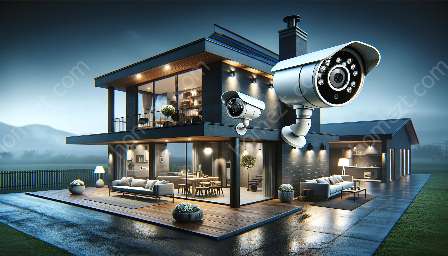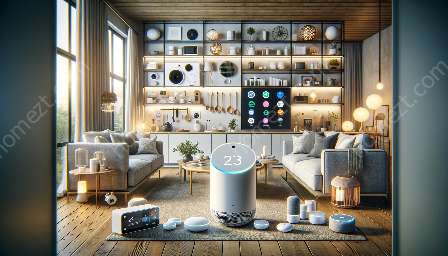Smart home networks and connectivity are revolutionizing the way we interact with our homes. This exciting technology, now compatible with popular home automation platforms such as Home Assistant, is at the forefront of modern living. In this comprehensive guide, we will delve into the key aspects and benefits of smart home networks, providing a detailed understanding of how they can enhance the convenience, security, and efficiency of your living space.
Understanding Smart Home Networks and Connectivity
Smart home networks represent a network of interconnected devices, appliances, and systems within a household that are designed to communicate with each other and be controlled remotely. This network relies on a robust connectivity infrastructure to facilitate seamless communication between the various devices, enabling homeowners to remotely monitor and adjust their home environment with ease.
Components of Smart Home Networks
The foundation of a smart home network is built on interconnected devices such as smart thermostats, lighting, security cameras, door locks, entertainment systems, and appliances. These devices are equipped with sensors, actuators, and communication modules to enable them to interact with each other and be controlled through a centralized platform.
Benefits of Smart Home Networks and Connectivity
The integration of smart home networks offers numerous advantages, including:
- Convenience: With a smart home network, you can remotely control and automate various aspects of your home, such as adjusting the temperature, turning lights on and off, and managing security settings.
- Energy Efficiency: Smart home networks can optimize energy usage by regulating heating, cooling, and lighting based on occupancy and environmental factors, leading to potential cost savings.
- Security: Connected devices provide advanced security features, including remote monitoring, motion detection, and real-time alerts, enhancing the overall safety of your home.
- Integration with Home Assistant: Home Assistant is a popular open-source home automation platform that allows for seamless integration with a wide range of smart home devices and systems. By incorporating Home Assistant into your smart home network, you can centralize control and automation, creating a cohesive and personalized home environment.
- Wireless Connectivity: Wi-Fi, Bluetooth, Zigbee, Z-Wave, and other wireless protocols enable devices to communicate and connect to the central network without the need for extensive wiring, offering flexibility and ease of installation.
- Internet of Things (IoT): The IoT ecosystem, comprised of interconnected devices and sensors, serves as the backbone of smart home networks, enabling them to collect, process, and exchange data for intelligent decision-making and automation.
- Cloud-Based Platforms: Cloud services provide a centralized infrastructure for managing and storing data, enabling remote access and control of smart home devices from anywhere with an internet connection.
Technology Driving Smart Home Networks
The core technology powering smart home networks and connectivity includes:
Creating Your Smart Home Network
Building a smart home network begins with selecting compatible devices that align with your specific needs and preferences. It is essential to consider factors such as interoperability, security features, and ease of integration with platforms like Home Assistant to ensure a seamless and robust network.
Embracing the Future of Home Automation
As the adoption of smart home networks continues to grow, the potential for innovation and customization within our homes expands. From voice-controlled assistants to intelligent climate control and automated security, the possibilities are endless. By embracing smart home networks and connectivity, homeowners can create a personalized and efficient living environment that adapts to their lifestyle and preferences.
With the transformative impact of technology, the concept of home is evolving into a connected and intelligent space. Smart home networks empower individuals to effortlessly manage their homes, enhance energy efficiency, and bolster security, ultimately redefining the way we experience and interact with our living spaces.





















